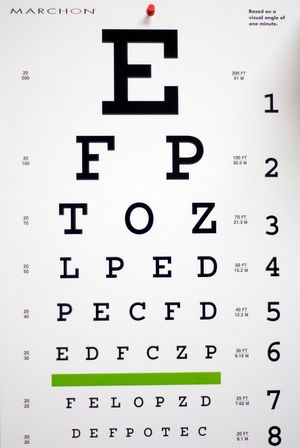
During a complete eye exam, your eye doctor will not only determine your prescription for eyeglasses, but will also check your eyes for common eye diseases, assess how your eyes work together as a team and evaluate your eyes as an indicator of your overall health.
A comprehensive eye exam includes a number of tests and procedures to examine and evaluate the health of your eyes and the quality of your vision. These tests range from simple ones, like having you read an eye chart, to complex tests, such as using a high-powered lens to examine the health of the tissues inside of your eyes.
Eyecare experts recommend you have a complete eye exam every year, depending on your age, risk factors, and physical condition.
Children. Some experts estimate that approximately 5% to 10% of pre-schoolers and 25% of school-aged children have vision problems. According to the American Optometric Association (AOA), all children should have their eyes examined before kindergarten. Children without vision problems or risk factors for eye or vision problems should then continue to have their eyes examined at least every year throughout school.
Children with existing vision problems or risk factors should have their eyes examined more frequently. Common risk factors for vision problems include:
- premature birth
- developmental delays
- turned or crossed eyes
- family history of eye disease
- history of eye injury
- other physical illness or disease
The doctors recommend that children who wear eyeglasses or contact lenses should have their eyes examined at least every 12 months.
Adults. The doctors also recommend an annual eye exam for any adult who wears eyeglasses or contacts. Dr. Newman and Dr. Lertora often recommend more frequent examinations for adults with diabetes, high blood pressure and other disorders, because many diseases can have an impact on vision and eye health.
If you are over 40, it's a good idea to have your eyes examined every one to two years to check for common age-related eye problems such as presbyopia, cataracts and macular degeneration. Because the risk of eye disease continues to increase with advancing age, everyone over the age of 60 should be examined annually.